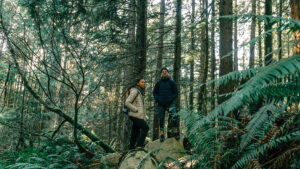
In February, many Americans celebrate Black History Month to recognize black history, successes, influences, challenges and black excellence across the country.
This recognition started as Negro History Week in 1926, which was established by educator and historian, Carter G. Woodson. This week was a direct challenge to traditional educational curricula and Woodson pushed for more education of Black history and culture in schools. He recruited black teachers, most of them women, and community institutions like churches, social clubs, libraries and fraternities, to help grow his vision.
Through the Civil Rights movement and, later, demands for African American Studies departments at college campuses across the country, this week of recognition outgrew its seven- day confinement. In the 1960’s, Negro History Week was renamed to African American History Week and in 1976, President Gerald Ford established Black History Month.
Dr. Woodson founded an organization currently known as the Association for the Study of African American Life and History (ASALH). It is responsible for the research, preservation and dissemination of knowledge about Black history.
Many Americans recognize Black History Month as a commemoration, a celebration and also a call to action. It is an opportunity to challenge dominant and often inaccurate narratives about historic and current Black communities. Every year, a theme is chosen for Black History Month and this year, the theme is resistance– how Black people have resisted historic and modern- day oppression in its many forms.
Dr. Woodson believed that one day, Black History Month would become obsolete due to common knowledge about Black history in America. Because we’re still far from this goal, JCWC continues to acknowledge and highlight Black partnerships and organizations around the watershed. We recognize that it is important to self- educate and acknowledge Black history year- round, as it could never be contained in one month. However, we take the opportunity this month to highlight Black leadership and successes around our watershed. Check out our featured Black partners and organizations on our Instagram and Facebook pages and support them by following, liking and donating to them!
